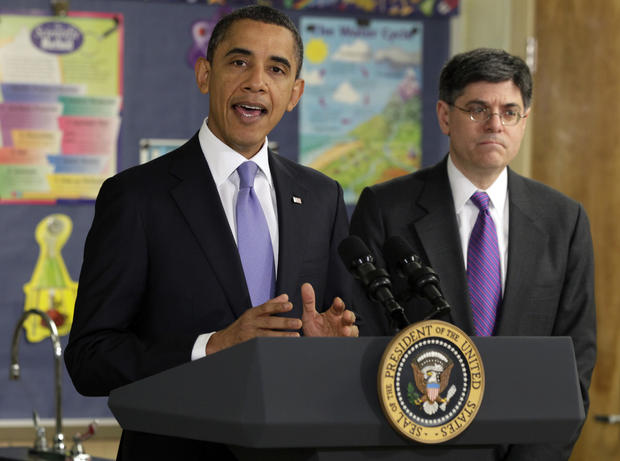Is a government shutdown on the horizon?
Welcome to the week that wasn't. This is the week in Washington where Congress is on vacation -- members are back home in their districts, doing town halls, ribbon cuttings, speeches, baby kissing, you name it. What they aren't doing is working on Capitol Hill to avoid a government shutdown next week.
In case you missed it, the House of Representatives passed a bill to cut over $60 billion from the federal budget. They did it in an open way, with hundreds of amendments on the floor. The House passed cuts in funding for public broadcasting, Planned Parenthood and border security. It rejected a ban on the military's NASCAR sponsorship spending. The process was unique and unprecedented. But not everyone can say the means justify the ends. The cuts are due to take place this year, from March until October, meaning that many programs will be cut off, offices shut, and workers laid off before the end of the year.
That is the outcome that the White House and most Democrats want to avoid. They are all for cutting government spending, but they hope to do it more judiciously, using a "scalpel instead of a machete" as President Obama himself is fond of saying.
Former senators weigh in on government shutdownBoehner Tones Down "So Be It" Comment
So what's the big deal? Well, the government runs out of money on March 4. Period. Unless both sides come together between now and then to fund it at current levels or even reduced levels, the government shuts down. This happened once before, and many in Washington are feeling its deja vu all over again. In 1995, a newly upstart Republican congress fresh off a midterm drubbing of the Democrats went toe-to-toe with President Bill Clinton and forced the government to shut down.
While many see the resurrection of a shutdown as a goal to achieve, others see it as another doomsday scenario that could mean no social security checks, no veterans benefits, no museums, no post offices, no passport offices, no national parks -- millions of honest hard working government workers left to sit at home and wait.
So what's going to happen? That's the $1.6 trillion question.
We've heard the president say he doesn't want a government shutdown. We've heard most Democrats on Capitol Hill say they don't want a government shutdown. Many leading Republicans have also said they don't want a government shutdown. Again, you ask, what's going to happen?
This week with Congress gone it will be, as Bob Schieffer said, another week of political posturing. Last week it was the Republicans' turn; now it's the president's turn. He'll have a whole week of the Washington media spotlight to lay out the markers of the shutdown political game. He'll insist he wants to cut spending, but wants to cut spending in a responsible way. Most of the negotiations will occur behind closed doors and probably over the phone. When Congress gets back next week, they'll have only a few legislative days to meet in person to reach an agreement to fund the government.
A highly likely outcome is another temporary funding measure. The current spending was set by a three month deal reached last December when the two sides couldn't agree on a deal to fund the government this year. So you could see another short-term funding bill. Talk about "kicking the can down the road" -- both sides will choose to punt to keep the game going for another month until some real deal can be reached.
But sometimes buying time is the best legislative solution -- because both sides may agree on the end game, but the plays they call are totally in opposition.
Republicans are heeding the "Tea Party" call and want to cut spending -- now. Democrats, fearing the pain those cuts cause the economic recovery -- and citing statistics suggesting that the GOP cuts could mean up to 800,000 jobs lost before the end of the year -- want to cut spending gradually, after the economy has recovered. Mr. Obama put forth many spending cuts in his 2012 budget, building a groundwork of economic recovery and then gradually cutting spending. This was a non-starter for Republicans, who want to slash government spending immediately, regardless of the short-term economic impact.
Reminder: a rough economy in November 2012 doesn't help Mr. Obama's re-election chances -- or those of any Democrat running for office. The 2012 framework is already commanding Washington's psyche.
So that brings us back to the question of what will happen this week: Nothing. The two sides will continue to come up with short term solutions or face a doomsday government shut down.
Right now, that scenario is looking more and more likely as the two sides have two increasingly varying reads on the last election, the remedy for the economy, and the way forward to a more prosperous country.

